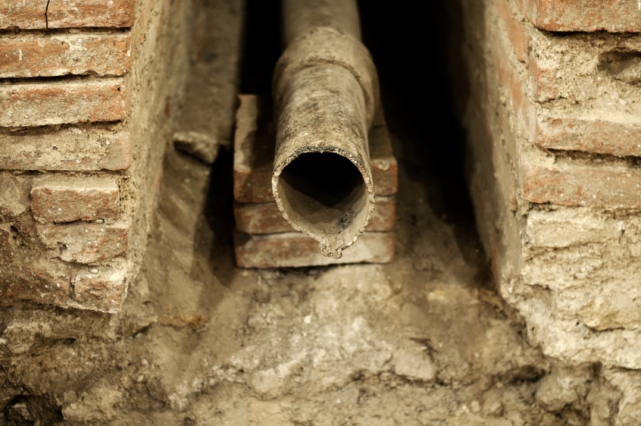
FAQs About Lead Pipes
Are lead pipes dangerous?
The simple, safest answer is yes, lead pipes can be dangerous. The more complicated answer is lead pipes may not be dangerous if the water provider’s water chemistry is properly adjusted and the pipes aren’t degraded. When water chemistry isn’t right for lead pipes, lead can be leached out of the pipes and into water that flows out of a home’s faucets.
There are good reasons lead pipes can no longer be legally installed in U.S. homes. If you do have lead plumbing, it’s likely in your family’s best interest to consider repiping
What is lead poisoning?
Lead poisoning is one of many potential metal poisonings that can have serious health effects, especially on the brain. According to the EPA and other safety and health organizations there is no safe level of blood lead concentration.
It’s best not to think of lead in “tolerable” amounts because any amount should always be avoided. Even low levels of lead exposure can result in lead poisoning, which can cause an array of developmental issues in children and cardiovascular or neurological issues in adults.
Can pediatricians screen for lead?
If you’re a D.C. area parent concerned your child may have been exposed to lead your pediatrician can perform a blood lead levels test.
What should I do if my home’s water is contaminated with lead?
- Don’t drink or cook with hot water from your faucets because lead contamination tends to be highest in hot water
- Let cold water run for 15 to 30 seconds before using if the faucet hasn’t been used in six or more hours (like when you wake up or after you come home from work)
- Boiling water doesn’t remove lead, in fact the evaporation of some water during boiling means the remaining water may have higher concentrations of lead
- If you suspect your home has lead pipes avoid using tap water when making baby formula
If lead is dangerous, why was it so popular for plumbing applications?
The Latin word for lead is plumbum, the word from which we derived plumbing. Lead pipes were used as far back as the Roman Empire because it’s a particularly malleable metal that lends itself to plumbing applications. (Some historians even theorize lead poisoning hastened Rome’s downfall.)
It wasn’t until 1986 that the U.S. Congress passed the Safe Drinking Water Act and banned installing new lead pipes and fittings or using lead-based solder.
If water chemistry is perfect and lead piping isn’t degraded there isn’t a huge risk for lead leaching into water, but even trace amounts of certain corrosive elements or compounds in the water supply allows for lead contamination.
How can I find out if I have lead pipes in my home?
If your home was built before 1986 and has never been repiped your home may have lead pipes. If in the district, find your home on the D.C. Water Service lead pipe map to see if your home has lead pipes on the private side (in your home) or the public side (the water line feeding your home).
What should I do if I have lead pipes in my home?
Having your home repiped is the best thing you can do if you discover you have lead pipes in your home. This is especially important for families with children, as they have a particularly high risk for suffering long-term negative effects from lead poisoning. Vito Services has partnered with Washington, D.C.’s Lead Pipe Replacement Assistance Program (LPRAP) to help homeowners get their lead pipes replaced.
Is lead pipe replacement expensive?
For many D.C. residents participating in the Lead Pipe Replacement Program getting new piping is free. The amount of monetary assistance you qualify for is based on family size and income, so even if you can’t get completely free lead pipe replacement you will likely qualify for a steep discount.
How can I get my lead pipes replaced if I live in Washington, D.C.?
If you’ve checked the lead pipe map and found your home’s piping or the city water line leading to your home is lead, contact Vito Services at 800-438-8486. We will quickly dispatch a qualified technician to your home to assess your pipes and recommend the safest course of action.
After our technician has provided a written quote you can apply for the Lead Pipe Replacement Program through the DC Department of Energy & Environment. Applicants will need to provide a copy of their DC Water bill, a photo ID, proof of property ownership and proof of income for the household.
Your household’s eligibility for assistance will be based on household size and income. Many DC-area applicants can get 100 percent of the lead pipe replacement cost covered through the program.

Thanks for letting us know that if we have a home built before 1986, then we may have lead pipes. Our home was built in 1980. Now we have several children to raise here, so we will probably call for a lead inspection specialist as soon as possible.